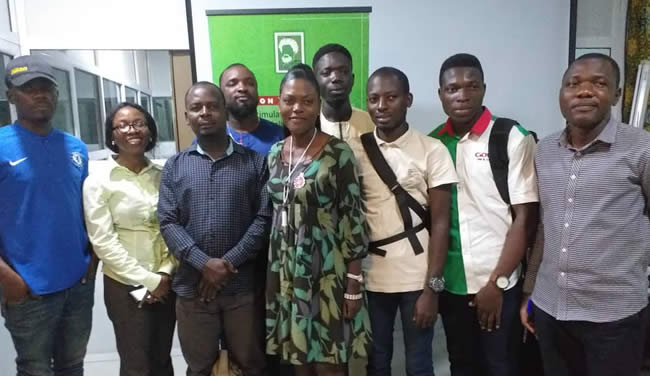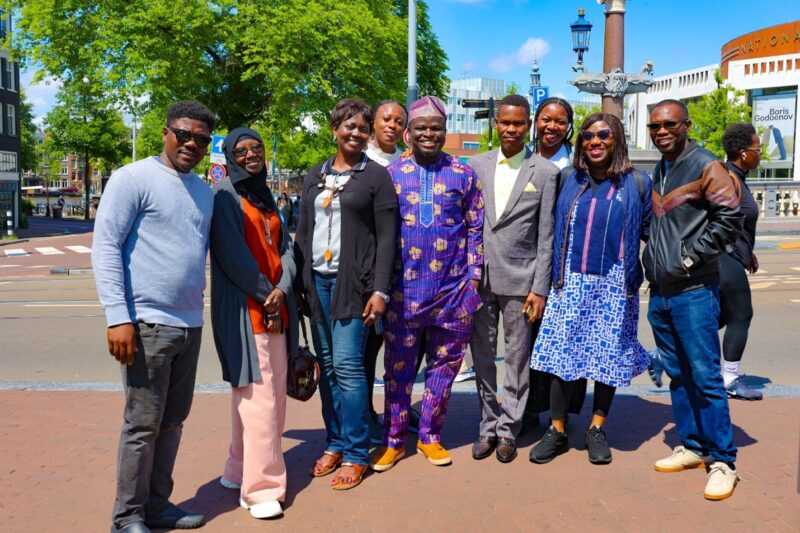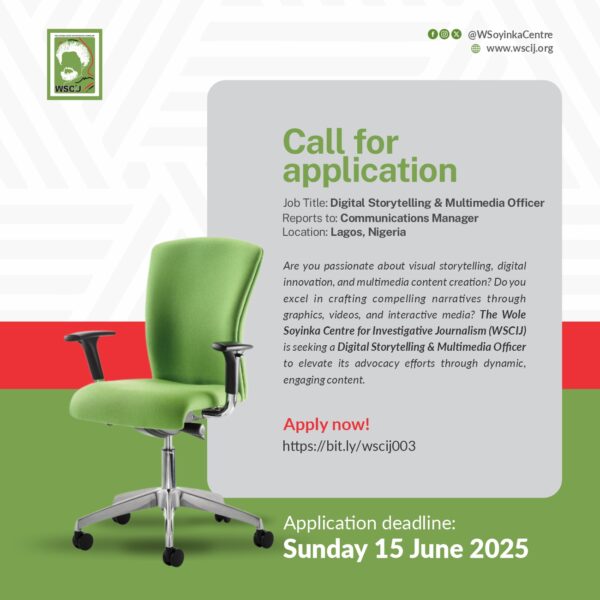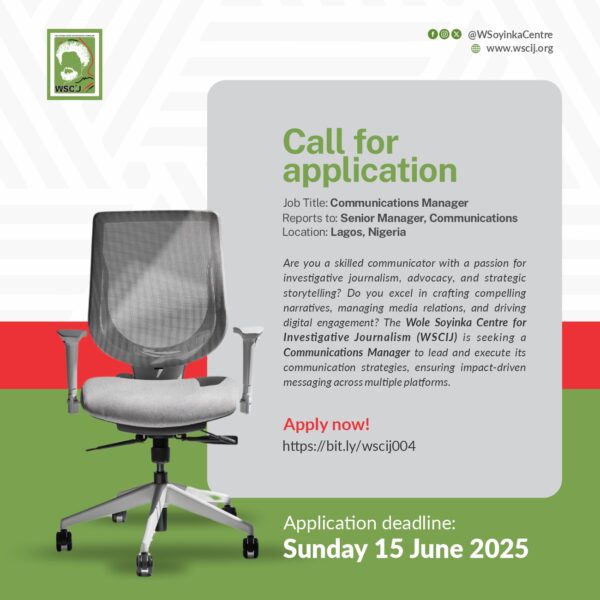Time Out with Journalists is a quarterly film viewing and networking event where journalists and reporters from various media platforms come together in a relaxed atmosphere to share key lesson points from movies in order to enhance a more productive and impactful newsroom.
The third and end of the year edition of Time Out with Journalists film held on 28th November 2019 with ten journalists from different newsrooms to view a movie titled ‘The Post’.
Samson Ademola, a Programme Officer, WSCIJ, opened the event with introductions and networking while welcoming everyone. Adeolu Ademola, Senior Programme Officer with the WSCIJ, shed more light on the objectives of the event. He stated that WSCIJ recognises the need for journalists to come together outside their workspaces to engage and interact with one another aside more serious events such as trainings and workshops. He related to a survey that lists Nigeria as one of the most dangerous places to live and Lagos as one of the most stressful state. Hence, the need for taking time out.
The movie, The Post focused on the collective efforts of two powerful media houses who risks their freedom and careers to expose massive cover up of three decades of four United States Presidents to help bring long-buried truths to light.
Toyin Adeniran, Programme Officer, WSCIJ after the movie highlighted some lessons learnt while relating it to national realties and country context. She referred to the current agitation and protest about the social media bill which ties to the massive support received for press freedom and freedom of the press from the film. Adeniran calls for accountability among the media stating that the media is the third eye of governance and should not be afraid to fill such role. She referenced a section in the movie which said ‘’we have to be the check on their power, if we don’t hold them accountable, who will’’
Raphael Ehigiator, a reporter with Thisday Newspaper, in his contribution, highlighted other key lessons from the film while calling for collective support and collaboration among journalists and media houses as seen in the film. He alluded to various scenarios journalists are confronted with and questions if the same can work in Nigeria.
Mary Fatile, FRCN reflected on the brown syndrome envelope which has killed live-threatening stories in Nigeria. She encouraged journalists to support one another in carrying out investigative stories and to always stand for the truth while referencing her experience with security agencies.
Gabriel Ogunjobi of the Nation newspaper decried the current ownership structure of media houses which he stated is financed by politicians. He questioned how such media houses can uphold the truth in the light their funding support.
Toyin Adeniran, in closing, encouraged journalists not to despair but should always continue to uphold the truth as only the truth prevails.








